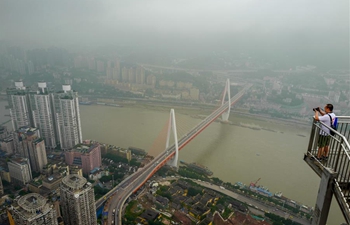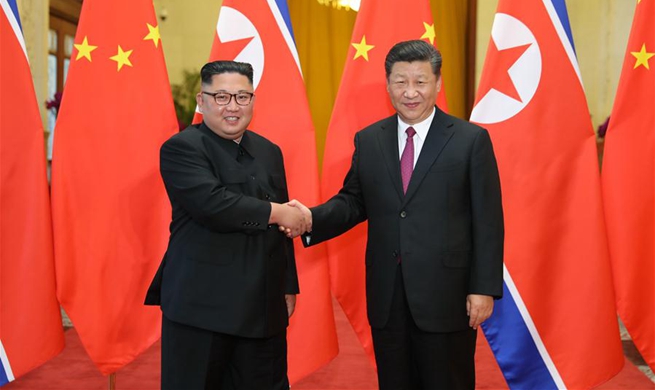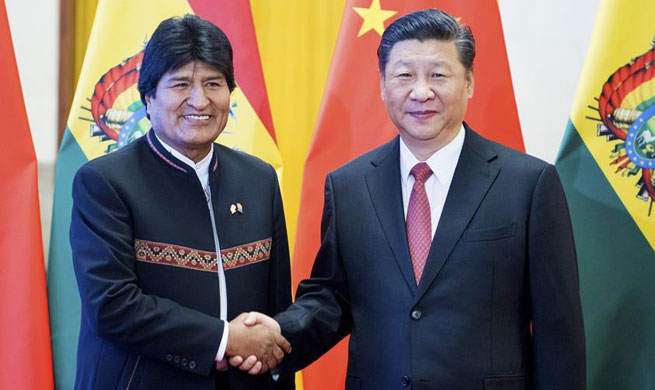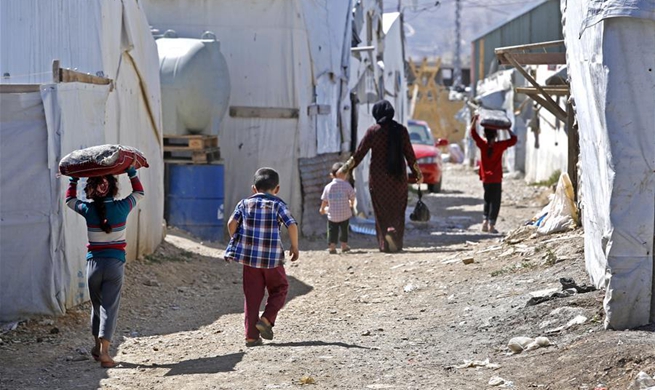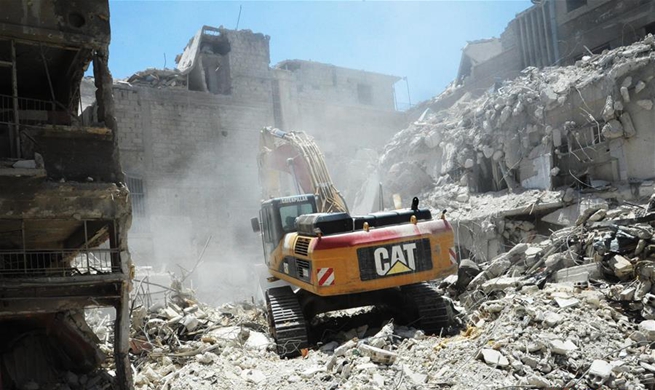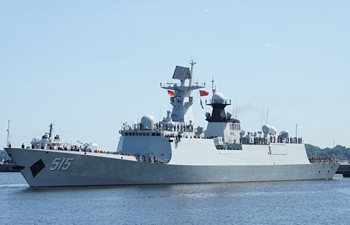ADEN, Yemen, June 19 (Xinhua) -- The pro-government Yemeni forces fully captured the international airport in the western port city of Hodeidah on Tuesday following fierce battles with the Houthi rebels, Yemen's Defence Ministry said.
With support of the United Arab Emirates (UAE) and Saudi-led warplanes, the joint Yemeni government forces took full control of the airport, after the escape of Houthi militants, the ministry declared in a statement posted online.
Colonel Abu Zara'a al-Mahrami, the general commander of the Coast Front in Hodeidah, declared that "all parts of Hodeidah airport have fallen to the hands of the forces of Al-Amaliqah Brigades and it's out of Houthis control now."
Sources confirmed to Xinhua by phone that the government forces seized the tower and runway of Hodeidah airport and started to dismantle hundreds of landmines planted inside the facility.
Some buildings in the airport were partially destroyed as a result of the Houthi shelling and airstrikes by the Saudi-led warplanes, the sources said.
The UAE official news agency WAM said that pro-government forces seized also AlMandhar village, west of Hodeidah airport, expelling Houthi militants from the area.
The Abu Dhabi-based Sky News Arabia TV reported that more than 10,000 fighters from the recently liberated areas joined the government forces in securing Hodeidah province.
Local sources noted that the airport will now be used to bring in humanitarian aid or supplies for government forces in the upcoming battles against Houthi rebels.
Local army commanders told Xinhua by phone that the Yemeni government forces entered the airport's main compound earlier in the day and got engaged in intense battles with the Houthi fighters in and around the facility.
The significant achievement comes with the help of the Saudi Arabia-led coalition, particularly the UAE.
Several battalions backed by armored vehicles from the Southern Resistance Forces based in Aden joined the ongoing military operations against the Houthi rebels in Hodeidah.
Under orders issued by Yemen's President Abdu-Rabbu Mansour Hadi, the Yemenis forces and the Saudi-led coalition launched the offensive against Hodeidah airport as they aimed at capturing the airport to besiege the Houthi forces by cutting their supply lines.
Political activists allied with the Houthi group refused to acknowledge losing Hodeidah airport, but said their fighters withdrew from the area in "a tactical move."
Meanwhile, the Yemeni troops continued their advance into the center of Hodeidah amid fierce fightings with the Houthis who established trenches and blocked the city's main roads with cement barricades.
Local media reports suggested that pro-government forces began military preparations for taking over the city's seaport after seizing the airport.
Civilian neighborhoods were also badly affected as a result of the bloody fightings between the two warring rivals for the seventh consecutive day, local residents said.
The United Nations office in Yemen said that more than 5,000 families have fled their homes since June and emergency aid is being distributed to the newly displaced people.
Earlier in the day, UN special envoy to Yemen Martin Griffiths left the Houthi-controlled capital Sanaa after four days of fruitless talks with Houthi leaders regarding their withdrawal from Hodeidah.
The Houthis vowed to fight "foreign forces and local mercenaries till liberating the entire Yemen."
Strategically situated on the Red Sea coast, Hodeidah, Yemen's fourth largest city with a population of 600,000, is the only major port city under Houthis control.
The Saudi-backed Yemeni government regarded retaking Hodeidah and its seaport as a milestone on the path of restoring the country from the grips of the Houthis.
The Hodeidah port, which the Iranian-backed Houthis captured in October 2014, serves as a key source of strength for Houthi militias because it is regarded as a lifeline for many Yemenis.
The UN warned that the battles to liberate Hodeidah, which has the highest poverty and malnutrition rates in the war-torn Yemen, could kill 250,000.









